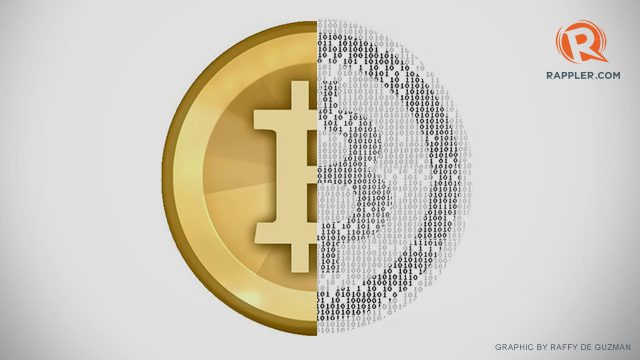SUMMARY
This is AI generated summarization, which may have errors. For context, always refer to the full article.

Shortly after the Paris attacks of November 13th, a number of news outlets began to circulate a story that had been brewing since 2014: ISIS had been using the bitcoin cryptocurrency to surreptitiously fund its terrorist activities around the globe.
The idea first began to propagate in the popular media upon the discovery of an ISIS-linked blog in July of 2014. Entitled “Bitcoin and the charity of violent physical struggle,” the blog described the theoretical use of Bitcoin donations to fund jihadist activities in an “untrackable” fashion.
On the strength of that article, the author, a Virginia resident named Ali Shukri Amin, then proceeded to use his Twitter account to encourage his 4,000 followers to donate to Syria-based extremists via Bitcoin. His support of ISIS wasn’t just a matter of public record; it was generating a Klout score. Amin, who is all of 17 years of age, has since been arrested and is now facing 11 years behind bars for his efforts.
“[Those] who use social media as a tool to [support] ISIL (ISIS) will be identified and prosecuted with no less vigilance than those who travel to take up arms with ISIL,” said the US Department of Justice regarding the case. Now repentant, the erstwhile cryptocurrency enthusiast faces a lifetime of supervised Internet use after his time has been served.
What isn’t clear is whether any Bitcoin was ever actually collected by the blogger and subsequently turned over to ISIS. It seems useful to consider this, since the blog entry puts forth a financial strategy that could be quite damaging if put in to widescale practice. But based on the DOJ’s summary ruling, this line of questioning is probably beside the point.

Muddying the waters
Fast forward to the week after the events of November 13th. A little-known industry blog, NewsBTC, breaks a story with a title that is both incendiary and imminently quotable: “ISIS Militants linked to France terrorist attacks had a bitcoin address with $3 million.”
The title is structured carefully – it never alleges that those bitcoins were directly used to fund the attacks – but the insinuation is gracelessly blunt. The article attributes its findings to the counter-terrorist activities of the hacktivist organization Ghost Security Group (GSG), who had discovered an ISIS-owned Bitcoin wallet containing the large amount.
The origins of GSG are tangential to this narrative, but is interesting as an object lesson in perplexing hacker naming conventions. There are two organizations named similarly – Ghost Security Group and GhostSec.org — and while the former is a government-friendly outfit and the progenitor of these Bitcoin findings, the latter is a sub-group within the more anarchic Anonymous family.
They are, apparently, not the same thing, and it seems that they don’t always agree with each other’s analyses.
GSG’s story appears to be winning out however. Not long after the NewsBTC report, Fox News repeats both the $3M figure and also identifies the GSG as the source of the information. They did clarify however that GSG did not believe that the uncovered Bitcoin wallets were “linked to the Paris attacks.”
The media attention had now risen enough to set off a peripheral line of reportage. Challenging the recent EU assessment that Bitcoin was “low-risk” for money laundering, Reuters jumped on the proverbial bandwagon with an article entitled “EU steps up controls on bitcoin, pre-paid cards to curb terrorist funds.”
A close inspection of the official press release on which the article is based reveals that bitcoin was never actually mentioned in the statement, and was instead referred to via the umbrella term “virtual currencies.” For the unfamiliar, “virtual currencies” encompass everything from Warcraft gold and Linden dollars to Starbucks Points and Facebook Credits, all of which could theoretically be leveraged for nefarious ends. Articles investigating the role of Simoleons in jihadi financing have yet to be written, however.

Lacking proof of guilt
The question of whether Bitcoin had actually been used to finance the Paris attacks should be down to forensic analysis. The lack of proof in the midst of all of these allegations is unsettling, to say the least.
As evidenced by the landmark Silk Road trials in early 2015, the blockchain provides an immutable proof of guilt that is admissible in a US court of law. By tracing Bitcoin transactions on the blockchain, the FBI was able to obtain a conviction not only for Ross Ulbricht, the operator of the Silk Road website, but also for one of its own agents who had been stealing the bitcoin they were investigating.
It’s likely that it will never be as easy as that again, however. “The biggest danger I see with relying on bitcoin’s blockchain trail as forensic evidence is in the ability of judges and juries to understand and evaluate the nuances of a very complex technical trail,” says Scott Dueweke, a cybersecurity expert and president of Zebryx Consulting. “This trail can be manipulated through the changing of IP addresses, tumbling, and converting. It will become increasingly difficult to track those bitcoin which are being skillfully used.”
The absence of any real evidence one way or the other reduces a lot of the writing on this subject to sensationalism in search of clickthroughs, and each new report adds another layer to further obfuscate the actual facts.
Was Bitcoin used to fund the Paris attacks? For a technology that relies so fundamentally on truth by consensus, there ironically seems to only be speculation on the matter. – Rappler.com
Thanks to JW and JS for contributing additional information for this piece.
Bitcoin image from Shutterstock
Add a comment
How does this make you feel?
There are no comments yet. Add your comment to start the conversation.